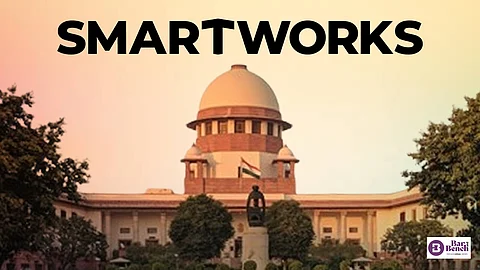The Supreme Court on Monday dismissed an appeal filed by New Delhi–based NGO Infrastructure Watchdog against the Securities and Exchange Board of India (SEBI) in connection with the initial public offering (IPO) of Smartworks Coworking Spaces Limited [Infrastructure Watchdog Vs SEBI].

